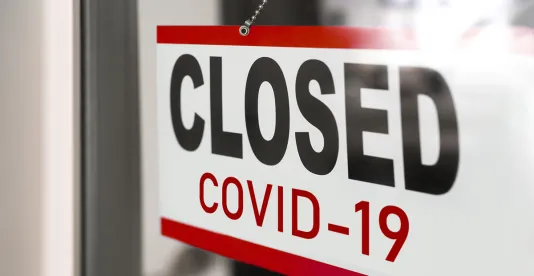On Wednesday, June 3, 2020 the U.S. Senate passed House bill 7010, the Paycheck Protection Program (PPP) Flexibility Act of 2020. The bill, which would provide greater flexibility to PPP loan recipients, is next headed to the president, who is expected to sign it into law. If finally signed into law, the bill would make various changes to the PPP, including:
-
Changes the eligibility criteria for loan forgiveness by reducing the portion of the loan proceeds that must be spent on payroll from 75% to 60%. This will allow up to 40% of the funds to be spent on certain qualified non-payroll items such as rent, mortgage interest, and utilities. However, this reduction, while seeming to allow greater flexibility for borrowers, without further guidance it appears to impose a requirement for borrowers to spend at least 60% of loan proceeds on payroll for any portion of the loan to be eligible for forgiveness. Under the existing rule, borrowers’ forgiveness amount is reduced, but not eliminated, if less than 75% of the proceeds was spent on payroll. Congress has indicated an intent to make technical changes to the law to restore the sliding scale under the new 60% threshold.
-
Changes the eligibility criteria for loan forgiveness by extending the time period in which a business must spend its loan proceeds from the current eight-week period to 24 weeks. A business that received a PPP loan prior to the enactment of this new law, however, may still elect to have the covered period of the loan be the eight-week period following disbursement of the loan.
-
Increases the minimum loan term, for portions of the loan not forgiven, from two years to five years for loans made after the date of enactment. For existing loans, borrowers can request an extension of their loan term from their lenders.
-
Permits businesses seeking loan forgiveness to defer certain payroll taxes without penalty.
-
Extends the rehiring safe harbor from June 30, 2020, to December 31, 2020. This will give businesses an additional six months to rehire employees or restore payroll levels without incurring any reduction in the forgiveness amount.
-
Provides exemptions from an employer’s requirement to maintain full-time equivalent employees in order to be eligible for loan forgiveness as a result of an employee’s unavailability following an offer to rehire or an employer’s inability to hire a replacement (the SBA’s interim final rule provides for a similar exemption), and for the employer’s inability to return to the same level of business due to compliance with federal COVID-19 related orders issued by federal HHS, OSHA, and CDC. Unfortunately, the exemption does not extend to compliance with state and local shut-down orders, which have had the most direct impact on small business – for this reason, the exemption may provide limited relief.
We expect the Small Business Administration (SBA) to issue rules on this new law in the coming weeks, and we will, of course, provide additional updates on any developments and changes to the PPP as they occur.





 />i
/>i


